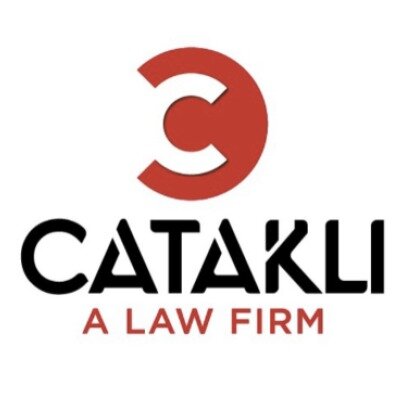Best Corporate Governance Lawyers in Luxembourg
Share your needs with us, get contacted by law firms.
Free. Takes 2 min.
List of the best lawyers in Luxembourg, Luxembourg
About Corporate Governance Law in Luxembourg, Luxembourg
Corporate governance refers to the system of rules, practices, and processes by which a company is directed and controlled. In Luxembourg, a prominent European financial center, corporate governance law aims to ensure businesses operate transparently, responsibly, and ethically. The framework is shaped by a mixture of national legislation, EU directives, and best practice codes, with particular importance placed on disclosure, accountability, and protection of minority shareholders. Whether you are running a local start-up or a multinational enterprise, understanding corporate governance in Luxembourg is essential for sustainable and lawful business management.
Why You May Need a Lawyer
Effective corporate governance involves complex legal and regulatory requirements. Engaging a lawyer can be invaluable in many situations, including:
- Establishing or restructuring corporate governance frameworks
- Ensuring compliance with local and EU disclosure obligations
- Drafting or reviewing company bylaws, shareholder agreements, and internal policies
- Advising on the composition and duties of boards of directors
- Managing conflicts of interest and related party transactions
- Handling regulatory investigations or corporate disputes
- Facilitating mergers, acquisitions, or cross-border transactions
- Advising family-owned companies on succession and governance transitions
A lawyer versed in Luxembourg's corporate governance landscape can help protect your company's reputation, minimize legal risks, and ensure compliance with evolving regulations.
Local Laws Overview
The legal framework governing corporate governance in Luxembourg combines several sources:
- Luxembourg Company Law - The Law of 10 August 1915 on commercial companies, as amended, is the cornerstone of company formation, management, and governance. It defines the roles and responsibilities of directors, shareholders, and company officers.
- Corporate Governance Codes - The Luxembourg Stock Exchange has issued corporate governance principles applicable to listed companies, encouraging transparency and ethical management, though their best practices are often adopted by unlisted companies as well.
- EU Law - Directives such as the Shareholders Rights Directive and the Non-Financial Reporting Directive also influence Luxembourg's approach.
- Financial Sector Regulations - If companies are in regulated sectors like banking or investment funds, they must comply with specific rules set by authorities including the Commission de Surveillance du Secteur Financier (CSSF).
- Board Structure - Luxembourg companies can select from single-tier (board of directors) or two-tier (management and supervisory boards) governance models, with clear rules on appointments and duties.
Understanding these local rules is vital for avoiding legal pitfalls and ensuring robust governance practices.
Frequently Asked Questions
What is the typical corporate governance structure for companies in Luxembourg?
Companies typically operate using either a single-tier board of directors or a two-tier structure with supervisory and management boards. The choice depends on the company type and its articles of association.
Are there specific laws regulating the conduct of directors?
Yes. Directors must act in the best interests of the company, exercise due care and diligence, and avoid conflicts of interest. Breaches can lead to civil and criminal liability.
Do Luxembourg companies have to follow a corporate governance code?
Listed companies must comply with the Luxembourg Stock Exchange governance code or explain any deviations. Unlisted companies are encouraged but not required to follow these principles.
What are the main reporting and disclosure requirements?
Companies must prepare and file annual accounts, hold general meetings, and disclose governance information in annual reports, with additional requirements for listed entities.
Are shareholders' rights protected under Luxembourg law?
Yes. Shareholders have the right to participate in general meetings, vote on major decisions, request information, and challenge decisions that breach their rights.
How are conflicts of interest handled in Luxembourg companies?
Directors must declare conflicts of interest to the board and may be excluded from deliberations or voting on related matters, especially in public interest entities and listed companies.
Can foreign individuals serve as directors in Luxembourg companies?
Yes. There are no nationality or residency restrictions for directors in most cases, though regulated sectors may have additional requirements.
What penalties exist for poor corporate governance or non-compliance?
Penalties can include fines, director disqualification, civil damages, criminal prosecution, and reputational harm to the company or its officers.
How are disputes among shareholders or board members resolved?
Disputes can be settled through internal mechanisms, mediation, arbitration, or litigation before the Luxembourg courts.
Are there particular rules for financial sector companies?
Yes. Banks, investment firms, and other regulated entities are subject to stricter governance standards, regular audits, and oversight by the Commission de Surveillance du Secteur Financier (CSSF).
Additional Resources
For more information or assistance, you can consult the following:
- Commission de Surveillance du Secteur Financier (CSSF) - The main financial regulator overseeing governance of financial entities
- Luxembourg Stock Exchange - For corporate governance codes and best practices
- Luxembourg Chamber of Commerce - Provides guidance and support for local businesses
- Ministry of Justice, Luxembourg - Resource for legal texts and company registration
- Luxembourg Bar Association - Directory of qualified lawyers for legal assistance
Next Steps
If you require legal advice or assistance with corporate governance in Luxembourg, consider the following steps:
- Assess your company's governance practices and identify potential areas of risk or uncertainty.
- Gather relevant documents, such as company statutes, board minutes, and prior legal opinions.
- Contact a qualified local lawyer or law firm specializing in corporate governance for an initial consultation.
- Prepare a list of questions or concerns specific to your business situation to discuss with your advisor.
- Follow up on recommendations and make necessary adjustments to your governance structures or policies.
- Stay informed about updates to local and EU laws that may affect your corporate governance obligations.
With the right professional guidance, you can ensure your company meets its legal responsibilities and operates according to the highest standards of corporate governance in Luxembourg.
Lawzana helps you find the best lawyers and law firms in Luxembourg through a curated and pre-screened list of qualified legal professionals. Our platform offers rankings and detailed profiles of attorneys and law firms, allowing you to compare based on practice areas, including Corporate Governance, experience, and client feedback.
Each profile includes a description of the firm's areas of practice, client reviews, team members and partners, year of establishment, spoken languages, office locations, contact information, social media presence, and any published articles or resources. Most firms on our platform speak English and are experienced in both local and international legal matters.
Get a quote from top-rated law firms in Luxembourg, Luxembourg — quickly, securely, and without unnecessary hassle.
Disclaimer:
The information provided on this page is for general informational purposes only and does not constitute legal advice. While we strive to ensure the accuracy and relevance of the content, legal information may change over time, and interpretations of the law can vary. You should always consult with a qualified legal professional for advice specific to your situation.
We disclaim all liability for actions taken or not taken based on the content of this page. If you believe any information is incorrect or outdated, please contact us, and we will review and update it where appropriate.












